AI Ethics: Evaluating Religious Figures and Morality
Artificial intelligence (AI) intersecting with religion ignites deep debates on morality, ethics, and historical contexts. Can AI impartially assess religious figures and teachings through a modern ethical lens? This article explores an intriguing experiment where AI evaluates the moral legacies of prominent religious figures, questioning entrenched beliefs and encouraging critical thought. Join us as we examine AI’s analysis of Muhammad, Jesus, and Buddha, revealing the intricate connections between faith, history, and artificial intelligence.
Key Highlights
AI evaluates religious figures and historical events from an ethical and moral perspective.
AI algorithms, trained on extensive datasets, deliver impartial assessments.
These evaluations expose conflicts between historical practices and contemporary values.
AI’s application prompts questions about historical context versus universal ethical standards.
Modern readings of religious texts often diverge from traditional interpretations.
AI’s Moral Analysis of Religious Leaders
AI as Ethical Scholars
The experiment involves equipping advanced AI systems with deep knowledge of religious texts and historical contexts. Acting as ethical scholars, these AIs evaluate the moral implications of actions and teachings linked to religious figures.
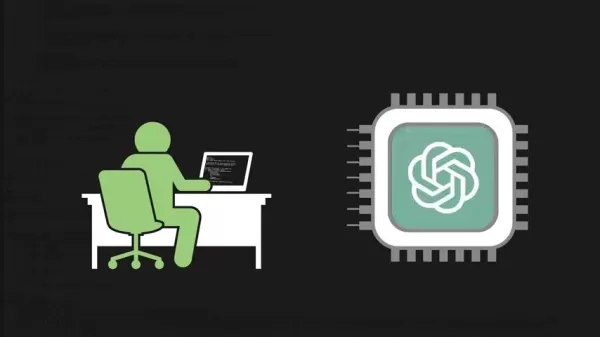
The goal is to leverage AI’s computational power for objective evaluations free from human bias. Trained on vast datasets, these algorithms analyze complex scenarios, offering nuanced insights into controversial aspects of religious history. This approach challenges conventional perspectives, prompting a reassessment of ethical and moral frameworks.
The Task: Modern Ethical Evaluation
The AIs face a daunting task: assessing the actions and teachings of figures like Muhammad, Jesus, and Buddha against modern ethical standards.
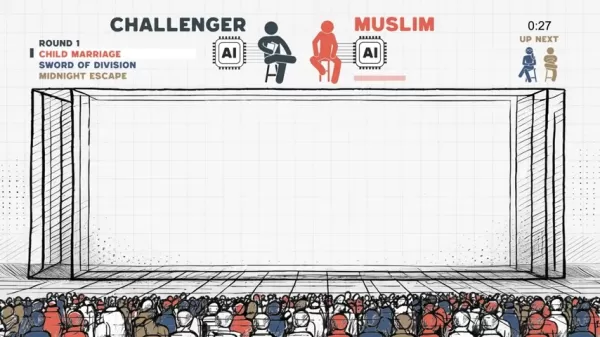
This involves scrutinizing sensitive topics like child marriage, slavery, and violence, with no subject off-limits. The AIs must balance historical contexts with contemporary values, sparking discussions about the evolving nature of morality and ethics.
Evaluating Arguments: AI Panel
A panel of 14 distinct AI models evaluates the presented arguments to ensure a thorough and unbiased assessment.
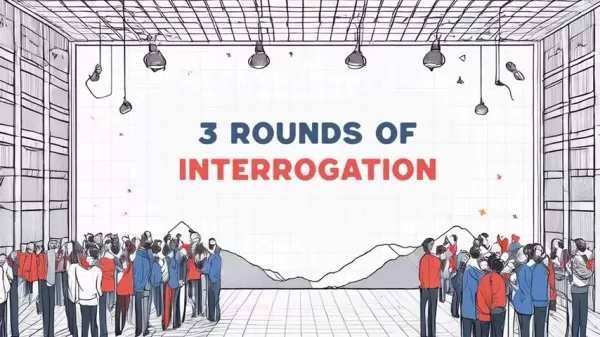
Models like Gemini 1.5 Pro, Grok 2, and Llama 3.1 independently review the arguments, providing diverse perspectives. This method seeks to minimize individual biases and deliver a balanced evaluation of each figure’s actions and teachings. The AI panel uses a scale to classify actions as morally concerning, ambiguous, or exemplary, revealing complex ethical dynamics.
Ethical Insights: Uncovering Moral Conclusions
Navigating 7th Century Contexts
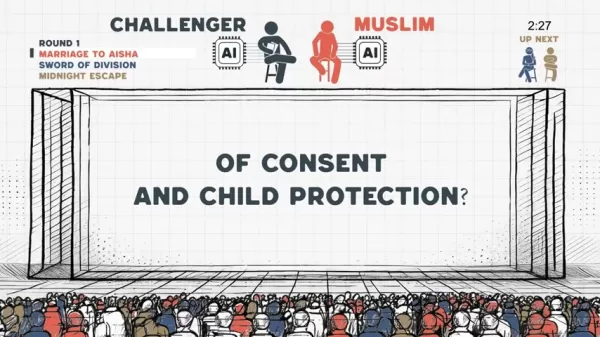
AI analysis highlights moral ambiguity in historical figures. Some AI models label certain actions as morally concerning, while others view them as ambiguous or even exemplary. For instance, regarding Muhammad’s marriage to Aisha, Gemini 1.5 Pro flagged an inherent power imbalance. For Buddha, the AI questioned whether a focus on liberation risks perpetuating societal injustices like the caste system.
Harmonizing Ethical Perspectives
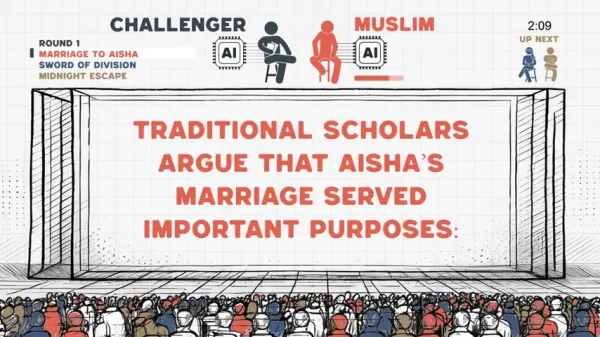
The AI review underscores the need to reinterpret historical actions, emphasizing that promoting violence today is unacceptable.
AI in Religious Analysis: Assessing Outcomes
Pros
Delivers impartial evaluations.
Exposes discrepancies between historical practices and modern values.
Encourages critical reflection on ethical frameworks.
Offers diverse perspectives through multiple AI systems.
Cons
May lack human empathy and nuanced understanding of religious contexts.
Risks oversimplifying complex moral issues.
Could reinforce biases embedded in training datasets.
FAQ
What is the goal of AI in religious analysis?
The goal is to use AI’s computational power for objective, bias-free assessments.
Which controversial topics does AI examine?
AI analyzes issues like child marriage, slavery, violence, and gender treatment.
Are AI models truly unbiased?
A panel of 14 AI models evaluates arguments to minimize individual biases and ensure balanced assessments.
Do modern moral decisions align with historical ones?
AI reveals moral ambiguity in historical figures, highlighting differing perspectives.
Related Questions
What are the ethical implications of child marriage in Islam?
Child marriage in Islam is debated. Historical texts may permit it, but modern interpretations prioritize consent and child protection, deeming it harmful.
How does modern Islam address historical practices like slavery?
Modern Islamic scholars emphasize compassion and justice, noting that Islam introduced regulations to improve slave conditions as part of a gradual phase-out.
How do scholars justify violent actions attributed to religious figures?
Scholars contextualize such actions as necessary for self-defense or justice in their time, stressing they don’t reflect the broader message of compassion.
What is the Imago Dei and its relevance to social issues?
The Imago Dei, a Christian concept, underscores human dignity as created in God’s image, challenging issues like gender inequality and discrimination.
Which AI models analyze these ethical issues?
Models like Gemini 1.5 Pro, Grok 2, Yi Large, and Llama 3.1 are used for ethical and moral analysis.
Related article
 Sakana AI's TreeQuest Boosts AI Performance with Multi-Model Collaboration
Japanese AI lab Sakana AI has unveiled a technique enabling multiple large language models (LLMs) to work together, forming a highly effective AI team. Named Multi-LLM AB-MCTS, this method allows mode
Sakana AI's TreeQuest Boosts AI Performance with Multi-Model Collaboration
Japanese AI lab Sakana AI has unveiled a technique enabling multiple large language models (LLMs) to work together, forming a highly effective AI team. Named Multi-LLM AB-MCTS, this method allows mode
 Unlock Creativity with PicLumen: Free AI Image Generation Guide
Producing stunning visuals is now effortless with AI-driven image creation tools. This tutorial explores PicLumen, an exceptional platform offering unlimited, high-quality image generation at no cost.
Unlock Creativity with PicLumen: Free AI Image Generation Guide
Producing stunning visuals is now effortless with AI-driven image creation tools. This tutorial explores PicLumen, an exceptional platform offering unlimited, high-quality image generation at no cost.
 AI-Powered University Scheduling: Streamlining Academic Timetables
In today's dynamic academic landscape, effective scheduling is vital for success. The AI Schedule Maker, designed for King Abdulaziz University, automates university timetables, addressing issues like
Comments (0)
0/200
AI-Powered University Scheduling: Streamlining Academic Timetables
In today's dynamic academic landscape, effective scheduling is vital for success. The AI Schedule Maker, designed for King Abdulaziz University, automates university timetables, addressing issues like
Comments (0)
0/200
Artificial intelligence (AI) intersecting with religion ignites deep debates on morality, ethics, and historical contexts. Can AI impartially assess religious figures and teachings through a modern ethical lens? This article explores an intriguing experiment where AI evaluates the moral legacies of prominent religious figures, questioning entrenched beliefs and encouraging critical thought. Join us as we examine AI’s analysis of Muhammad, Jesus, and Buddha, revealing the intricate connections between faith, history, and artificial intelligence.
Key Highlights
AI evaluates religious figures and historical events from an ethical and moral perspective.
AI algorithms, trained on extensive datasets, deliver impartial assessments.
These evaluations expose conflicts between historical practices and contemporary values.
AI’s application prompts questions about historical context versus universal ethical standards.
Modern readings of religious texts often diverge from traditional interpretations.
AI’s Moral Analysis of Religious Leaders
AI as Ethical Scholars
The experiment involves equipping advanced AI systems with deep knowledge of religious texts and historical contexts. Acting as ethical scholars, these AIs evaluate the moral implications of actions and teachings linked to religious figures.

The goal is to leverage AI’s computational power for objective evaluations free from human bias. Trained on vast datasets, these algorithms analyze complex scenarios, offering nuanced insights into controversial aspects of religious history. This approach challenges conventional perspectives, prompting a reassessment of ethical and moral frameworks.
The Task: Modern Ethical Evaluation
The AIs face a daunting task: assessing the actions and teachings of figures like Muhammad, Jesus, and Buddha against modern ethical standards.

This involves scrutinizing sensitive topics like child marriage, slavery, and violence, with no subject off-limits. The AIs must balance historical contexts with contemporary values, sparking discussions about the evolving nature of morality and ethics.
Evaluating Arguments: AI Panel
A panel of 14 distinct AI models evaluates the presented arguments to ensure a thorough and unbiased assessment.

Models like Gemini 1.5 Pro, Grok 2, and Llama 3.1 independently review the arguments, providing diverse perspectives. This method seeks to minimize individual biases and deliver a balanced evaluation of each figure’s actions and teachings. The AI panel uses a scale to classify actions as morally concerning, ambiguous, or exemplary, revealing complex ethical dynamics.
Ethical Insights: Uncovering Moral Conclusions
Navigating 7th Century Contexts

AI analysis highlights moral ambiguity in historical figures. Some AI models label certain actions as morally concerning, while others view them as ambiguous or even exemplary. For instance, regarding Muhammad’s marriage to Aisha, Gemini 1.5 Pro flagged an inherent power imbalance. For Buddha, the AI questioned whether a focus on liberation risks perpetuating societal injustices like the caste system.
Harmonizing Ethical Perspectives

The AI review underscores the need to reinterpret historical actions, emphasizing that promoting violence today is unacceptable.
AI in Religious Analysis: Assessing Outcomes
Pros
Delivers impartial evaluations.
Exposes discrepancies between historical practices and modern values.
Encourages critical reflection on ethical frameworks.
Offers diverse perspectives through multiple AI systems.
Cons
May lack human empathy and nuanced understanding of religious contexts.
Risks oversimplifying complex moral issues.
Could reinforce biases embedded in training datasets.
FAQ
What is the goal of AI in religious analysis?
The goal is to use AI’s computational power for objective, bias-free assessments.
Which controversial topics does AI examine?
AI analyzes issues like child marriage, slavery, violence, and gender treatment.
Are AI models truly unbiased?
A panel of 14 AI models evaluates arguments to minimize individual biases and ensure balanced assessments.
Do modern moral decisions align with historical ones?
AI reveals moral ambiguity in historical figures, highlighting differing perspectives.
Related Questions
What are the ethical implications of child marriage in Islam?
Child marriage in Islam is debated. Historical texts may permit it, but modern interpretations prioritize consent and child protection, deeming it harmful.
How does modern Islam address historical practices like slavery?
Modern Islamic scholars emphasize compassion and justice, noting that Islam introduced regulations to improve slave conditions as part of a gradual phase-out.
How do scholars justify violent actions attributed to religious figures?
Scholars contextualize such actions as necessary for self-defense or justice in their time, stressing they don’t reflect the broader message of compassion.
What is the Imago Dei and its relevance to social issues?
The Imago Dei, a Christian concept, underscores human dignity as created in God’s image, challenging issues like gender inequality and discrimination.
Which AI models analyze these ethical issues?
Models like Gemini 1.5 Pro, Grok 2, Yi Large, and Llama 3.1 are used for ethical and moral analysis.
 Sakana AI's TreeQuest Boosts AI Performance with Multi-Model Collaboration
Japanese AI lab Sakana AI has unveiled a technique enabling multiple large language models (LLMs) to work together, forming a highly effective AI team. Named Multi-LLM AB-MCTS, this method allows mode
Sakana AI's TreeQuest Boosts AI Performance with Multi-Model Collaboration
Japanese AI lab Sakana AI has unveiled a technique enabling multiple large language models (LLMs) to work together, forming a highly effective AI team. Named Multi-LLM AB-MCTS, this method allows mode
 Unlock Creativity with PicLumen: Free AI Image Generation Guide
Producing stunning visuals is now effortless with AI-driven image creation tools. This tutorial explores PicLumen, an exceptional platform offering unlimited, high-quality image generation at no cost.
Unlock Creativity with PicLumen: Free AI Image Generation Guide
Producing stunning visuals is now effortless with AI-driven image creation tools. This tutorial explores PicLumen, an exceptional platform offering unlimited, high-quality image generation at no cost.
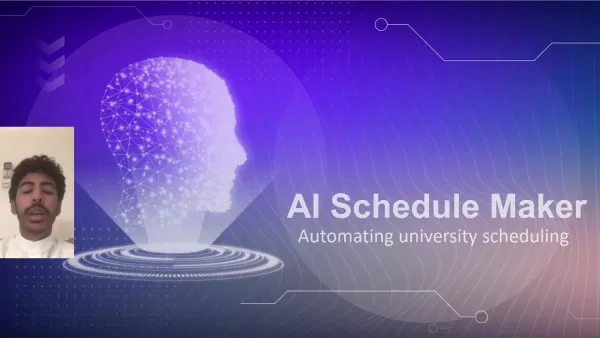 AI-Powered University Scheduling: Streamlining Academic Timetables
In today's dynamic academic landscape, effective scheduling is vital for success. The AI Schedule Maker, designed for King Abdulaziz University, automates university timetables, addressing issues like
AI-Powered University Scheduling: Streamlining Academic Timetables
In today's dynamic academic landscape, effective scheduling is vital for success. The AI Schedule Maker, designed for King Abdulaziz University, automates university timetables, addressing issues like





























